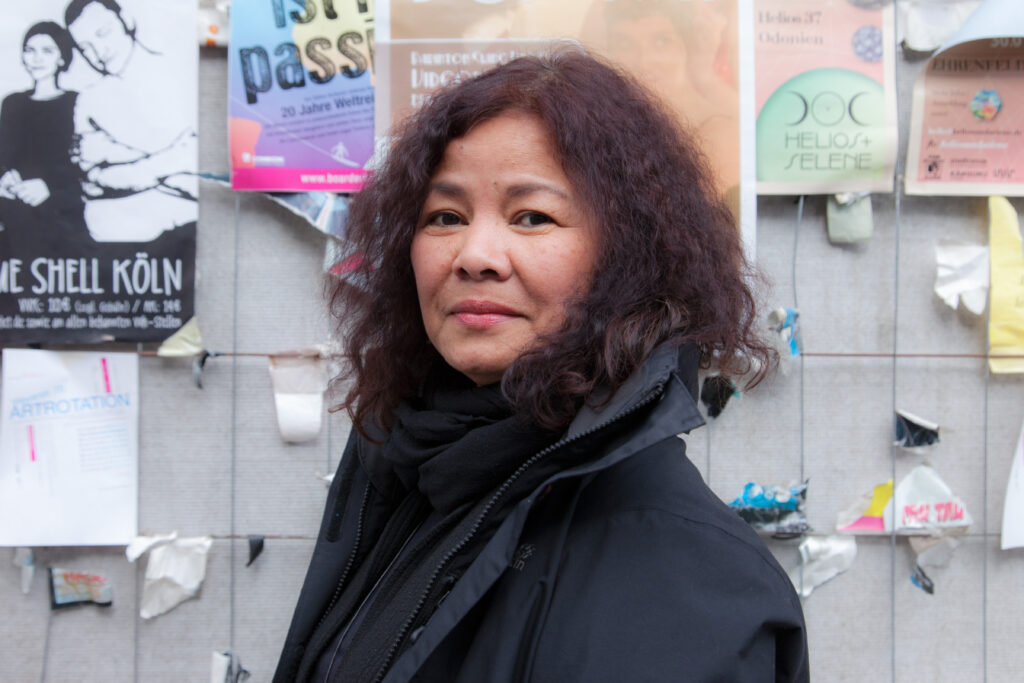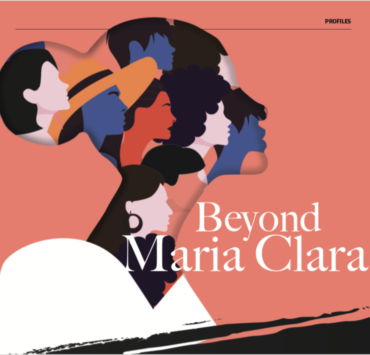After reading an insulting advertisement in a German paper, Mary Lou Hardillo took action, which led her to become the pioneer of Filipina feminism in Germany. T
N o matter where I am in the world, whenever I introduce myself as a Filipino, I usually get a reply like, “The only Filipinos I know are the ones working in my friend’s house and the ones working on the cruise ships I took”.
This stereotype has been largely created thanks to the programs of the Philippine government. From Ferdinand Marcos’ Overseas Contract Workers (OCWs) to Gloria Arroyo’s Supermaids, the Philippines has become the largest labor exporter in the world. According to the data from the World Bank, OFW remittance amounts to an average 10% of the Philippine Gross Domestic Product (GDP), highest in 2005 at 12.7%. Our people have become our biggest export product.
But Filipino migrant women have proven that domestic helpers are only job titles and should not be limiting. They might be house helpers on one hand, and businesswomen on the other, carers by weekdays and photographers in the weekends, cleaners by day, students by night.
I interviewed three modern Filipinas in Germany, whose works embody Filipino strength and talent, inspiring others to dream bigger.

Mary Lou Hardillo is a pioneer of the Filipino feminist movement in Germany. Her advocacy started in the 80’s after she saw an advertisement in a German newspaper depicting Filipino and Asian women as “submissive, sweet and naïve women for rich German men.”
She called the paper to express her anger and indignation. Since then, she has made it her mission to push for feminist awareness in Germany and sought like-minded individuals to further her advocacy in women’s rights.
“I participated in town halls, workshops, seminars, interacted with the local community. I wanted to let the German public know we were not like that at all, that one cannot put people in boxes. I talked to them about our Filipino culture, about the power of the Filipino women in the household, in the family, of the pre- colonial Filipino woman.”
In 1992, together with other Filipino feminists in Europe, they founded Babaylan, a network support system that aims to unite Filipinas in Europe, provide support and address a wide range of issues affecting women, from physical and sexual abuse, racism, sexism, and discrimination. They facilitate workshops, provide skill trainings, and organize campaigns pushing for participatory roles of women in society building. The network runs on voluntary basis and that all of them have their respective primary jobs. Hardillo herself was working as intercultural mediator and court translator.
“We have no office, no financial capacity as an organization, it is a do-it- yourself undertaking. There’s no money for strong women,” she laments.
Mary Lou Hardillo, founder Babaylan Germany.
Her involvement in the feminist movement eventually caused Hardillo her job.
In 2007, Lotis K., a 33-year-old Filipina suddenly disappeared after a series of arguments with her husband. She was in a middle of a divorce case and a fierce custody battle for their 4-year old son. The prosecutors of Cologne charged Lotis K.’s husband, along with his brother and sister, with murder despite the absence of a corpse. Hardillo was the official court translator.
At the final stage of the case, Hardillo was accused of conflict of interest. At that time, she was the chairperson of Babaylan. The court declared her biased, and in 2012, she lost her job.
It was a depressing period for Hardillo but despite the challenges, she continued fighting for women’s rights.
She has become one of the most-widely published Filipinos in Germany, particularly about Filipino migrants, women and life as an expat. She has written, among others, Filipino Women Migrants in Germany, TransEuroExpress: Filipinas in Europe, Wie Frauen auf den Philippinen leben, Philippinen: Paradies in Aufruhr, Filipinos on the move — Wir setzen auf Integration, Partizipation und Empowerment. She has published countless essays both in English and German.
In 2020 she was nominated for the first Else Falk Prize, an award for the extraordinary achievements in the field of gender equality in Cologne. She did not win but for her, it was a recognition of her commitment and sacrifices advocating for Filipino migrants and women’s rights for more than 30 years.




